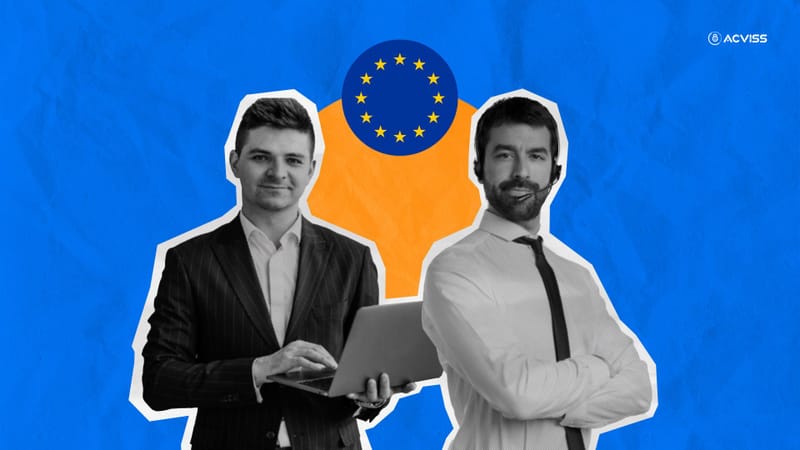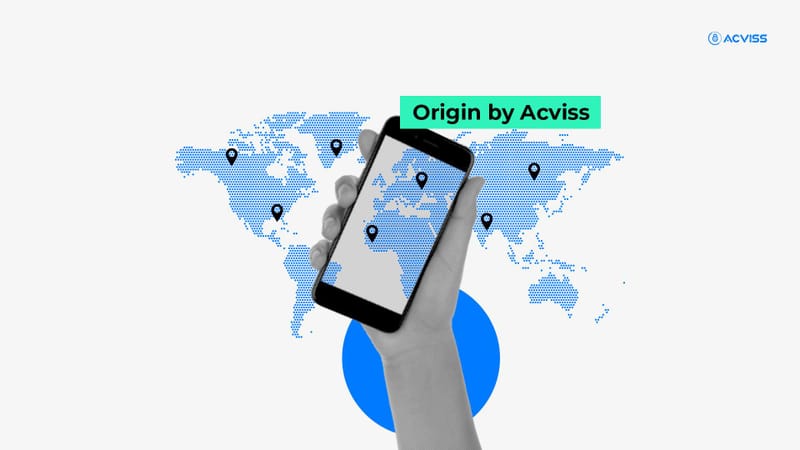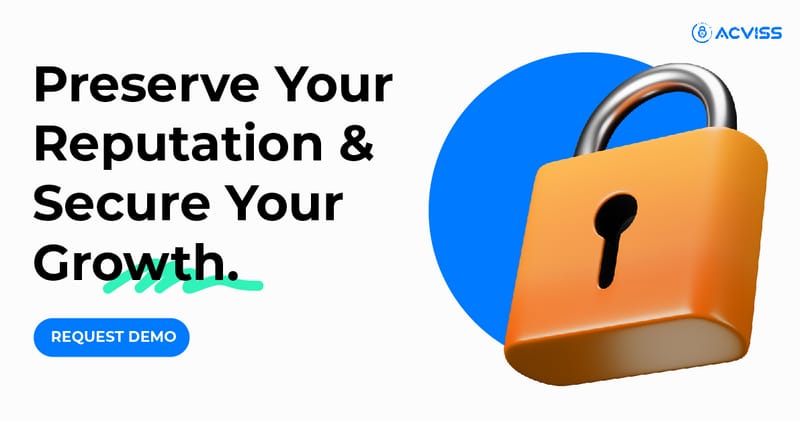EUDR Compliance : What Operators and Traders Need to Know
The European Union Deforestation-free Regulation (EUDR) has brought forth a new era of supply chain. If you're involved in importing or exporting commodities like coffee, cocoa, or soy, it's essential to understand how the EUDR impacts your business. But now the question arises: Are you considered an operator or a trader under the regulation? What are your obligations? All of it is a lot to take in. But worry not; in this blog, we will break down these roles and the critical steps you need to take for compliance.
What is EUDR?
Before diving into the specifics, let's revisit what EUDR is all about. The EUDR regulation is designed to prevent commodities linked to deforestation from entering the European market. Its scope covers a wide range of products.
- Soy
- Palm oil
- Coffee
- Cocoa
- Rubber
- Wood
- Cattle
...and any products that are derived from them.
This is because these are commodities that have a major role in the deforestation of agricultural land. The aim is to reduce deforestation, protect biodiversity, and promote sustainable supply chains. The regulation applies to both operators—businesses that introduce commodities into the EU market—and traders, who may be further along the supply chain but still have vital responsibilities.
While some industries, such as coffee exporters, face particular challenges, the EUDR regulation spans multiple sectors and impacts global trade practices significantly.
What is Operators & Traders under EUDR
One of the first steps to comply with the EUDR regulation is identifying your role within the supply chain—are you an operator, or are you a trader? This distinction is crucial as the obligations vary depending on which category you fall into.
Operators
Operators are the primary businesses responsible for placing relevant commodities or products on the European market for the first time. This could be an importer, a processor, or even a retailer. Operators have significant obligations under the EUDR. An operator has to make sure that their products are deforestation-free and conduct due diligence throughout their supply chains.
The EUDR defines an operator as:
"Any natural or legal person who places on the market or exports relevant products in the course of a commercial activity"
Let's break this down with an example:
Example: A company in Brazil is a coffee exporter to an EU-based food manufacturer. The food manufacturer, who imports and processes these coffee beans to create coffee products, is considered the operator under EUDR because it's the first to introduce the commodity to the European market. Additionally, if another company purchases processed coffee powder and uses it to manufacture a new food product, that company becomes an operator since it has altered the commodity and created a new product.
Operator Responsibilities:
- Conduct due diligence on your supply chain to ensure that your products are not associated with deforestation or forest degradation.
- Submit a due diligence statement that includes information on the product's supply chain and evidence of deforestation-free production.
- Maintain detailed records and documentation to prove compliance.
Operator's role under the EUDR
Definition: Businesses placing relevant commodities or products on the EU market for the first time. This includes importers, processors, and retailers.
Primary Role: Ensure products are deforestation-free by conducting due diligence throughout the supply chain.
Responsibilities
- Conduct and document due diligence.
- Submit a due diligence statement with supply chain details.
- Maintain records proving compliance.
Traders
Traders, by contrast, are businesses involved in the buying and selling of these commodities within the EU but are not responsible for placing them on the market for the first time. While their responsibilities are less stringent compared to operators, traders are still required to maintain records and ensure the traceability of their products.
According to the EUDR, a trader is:
Any [natural or legal] person in the supply chain, other than the operator, who makes relevant products available on the market in the course of a commercial activity
Here's an example to make it clearer:
Example: Imagine a large retailer in Germany that buys coffee products from the manufacturer (the operator) and sells them to consumers across Europe. This retailer is classified as a trader under the EUDR because it isn't the first to introduce the product to the European market but is distributing it further along the supply chain.
Trader Responsibilities
- Collect and retain relevant information about the products they trade.
- Share compliance information with authorities or operators upon request.
- Ensure traceability and transparency within their supply chain.
Trader's role under the EUDR
Definition: Businesses buying and selling relevant commodities within the EU but not placing them on the market for the first time.
Primary Role: Ensure traceability and transparency within the supply chain.
Responsibilities:
- Collect and retain product information.
- Share compliance data with authorities or operators when requested.
- Maintain records to prove product traceability.
EUDR Requirements for Operators and Non-SME Traders (Article 8)
One of the core articles of the EUDR, Article 8, specifies the requirements for operators and non-SME traders. These entities are held to a higher standard than smaller businesses (SMEs), primarily due to the larger scale and potential impact of their activities on deforestation.
Key requirements for operators and non-SME traders include:
- Due Diligence: Operators and non-SME traders must conduct due diligence, ensuring their products are deforestation-free. This means they have to track and trace the origin of the product, assess the risk, and take steps to mitigate it.
- Supply Chain Transparency: To ensure transparency, information must be collected at every stage of the supply chain. This will also allow authorities to verify compliance. This includes geographic data, supplier information, and evidence proving the commodity's production didn't contribute to deforestation.
- Risk Assessment: Operators must evaluate the deforestation risk associated with their supply chains. If a risk is detected, additional measures, such as audits or third-party verification, should be implemented to mitigate it.
- Compliance Documentation: Operators must maintain records proving their products are compliant with the EUDR's standards. These records should be readily available to authorities upon request.
Non-SME traders also face similar requirements, though their due diligence obligations are generally less compared to operators. SME traders, by contrast, are mainly required to keep basic records and provide them to authorities or market operators upon request.
Key Challenges in EUDR Compliance
For both operators and traders, complying with the EUDR can be challenging due to the complexity of global supply chains. Below are some common obstacles:
- Data Collection: Gathering the necessary information to prove that commodities are deforestation-free can be a time-consuming process. Many operators rely on third-party audits and certification schemes to streamline this process, but challenges can arise in regions with less transparent supply chains.
- Traceability Issues: With commodities passing through multiple stages in the supply chain, ensuring traceability can be difficult. Businesses must establish clear, reliable tracking systems to keep tabs on the movement of goods from origin to market.
- Risk Assessment: Identifying and mitigating deforestation risks can be daunting, especially for commodities sourced from regions prone to illegal logging or deforestation.
- Costs: Compliance with the EUDR may require significant investment, especially for smaller operators or those operating in high-risk regions. While the costs of compliance can be high, the financial and reputational consequences of noncompliance are far greater.
How Origin by Acviss Can Help
Origin by Acviss is a cutting-edge track-and-trace solution designed to help businesses navigate the complexities of EUDR compliance. Origin by Acviss enables companies to monitor their supply chains in real time by leveraging advanced technology. It ensures transparency and accountability.
With features that help track the origin of commodities, businesses can prove their products are deforestation-free, simplifying compliance with the EUDR. This tool not only provides peace of mind but also helps businesses meet the growing demand for sustainability in the marketplace.
Conclusion
The EUDR marks a significant step forward in promoting sustainable trade practices and reducing deforestation. As operators and traders, your roles may differ, but your responsibilities are clear. By understanding the regulations, conducting thorough due diligence, and leveraging tools like Origin by Acviss, you can make sure that you comply with the EUDR and contribute to a more sustainable future.
Staying ahead of these regulations will help protect the environment and also position your business as a leader in sustainability. As global trade continues to evolve, the ability to meet these requirements will become increasingly important for businesses aiming to succeed, not just in the European market.
If you are interested to know more about EUDR, get in a quick chat with us here. We at Acviss have secured over 2 billion products and 80+ brands globally.Our advanced anti-counterfeiting and brand protection solutions are always at your disposal.




